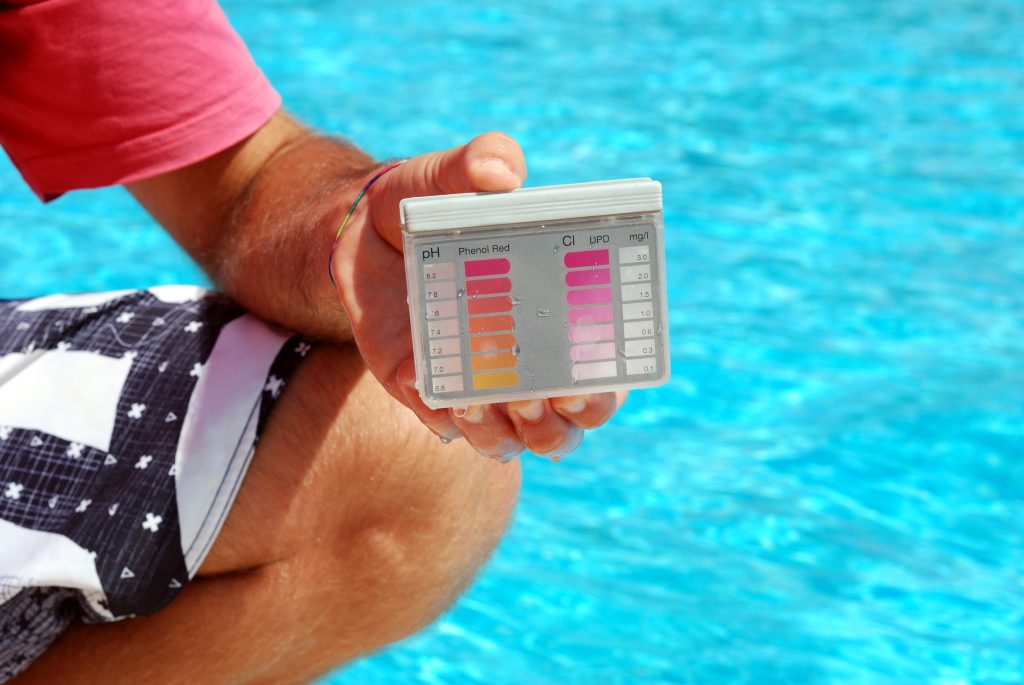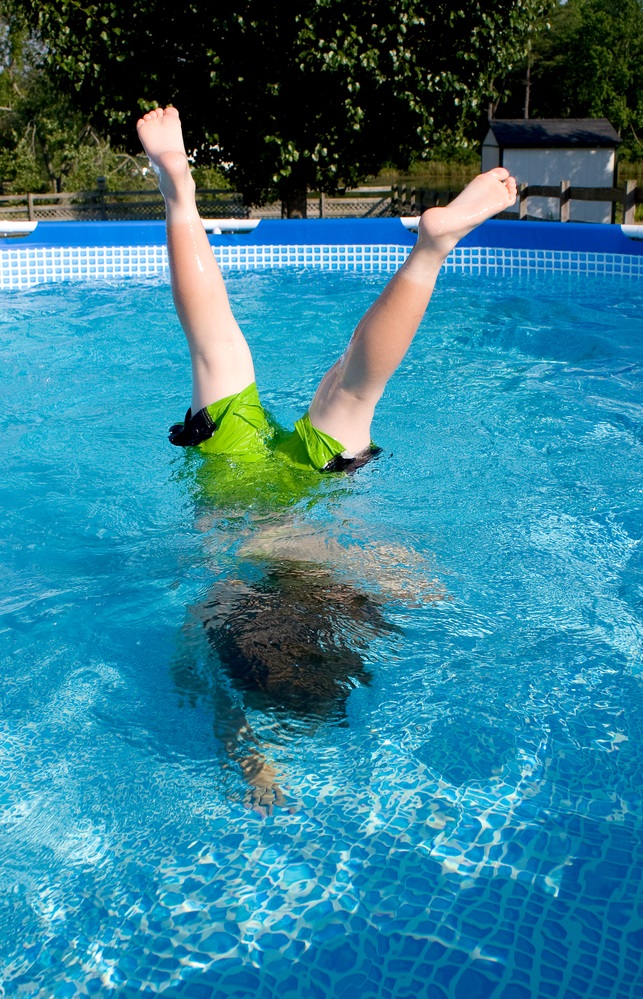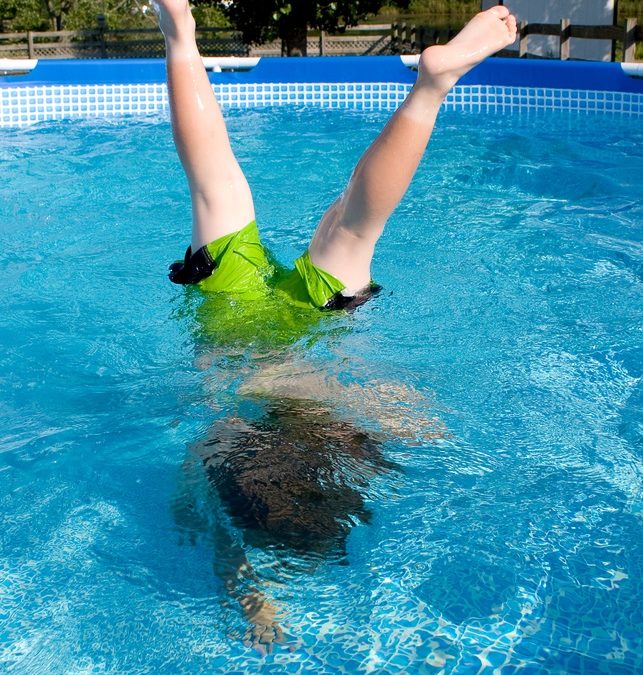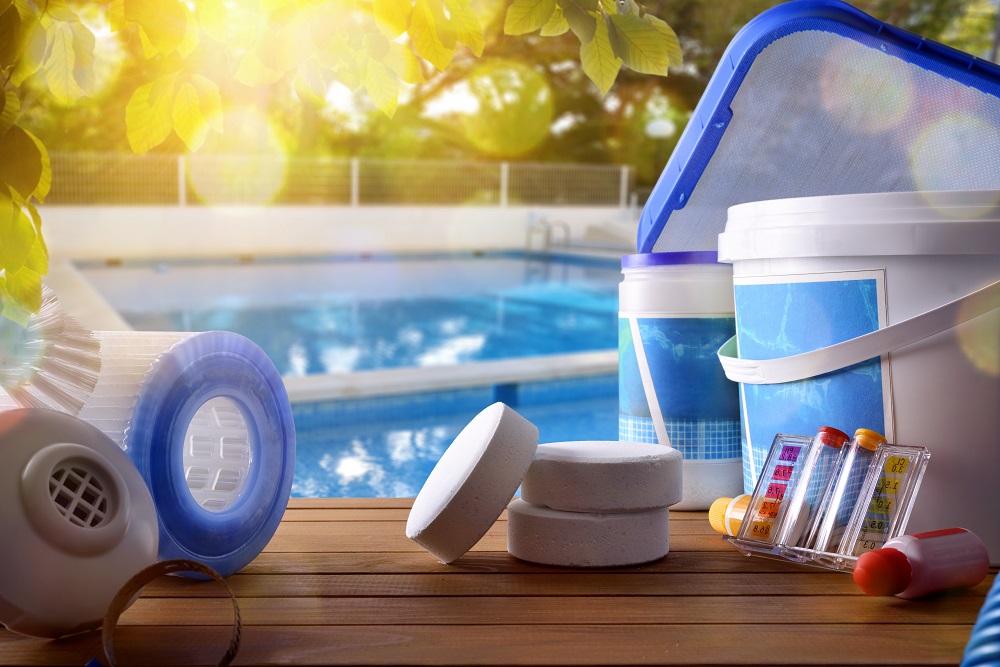You own a swimming pool, but you work with a swimming pool service contractor. Do you truly need to know about pool chemistry, water testing and swimming pool chemicals? We believe the answer is “yes.” If you own a pool — you’ve made a major financial investment — and should be concerned with the pool, its care and upkeep as well as the chemicals you’re swimming in and how to test it between service visits.
Ask your pool contractor for a brief rundown and an education on pool chemistry and how you can test the water between service visits to assure yourself that the water is safe for everyone to swim in. You certainly don’t want tob e swimming in a chemical soup that isn’t killing bacteria, do you? Of course not and that’s why swimming pool water chemistry is so important!
 What You Need To Know About Pool Chemistry
What You Need To Know About Pool Chemistry
What happens when your swimming pool needs to be cleaned? Do you do it yourself? Have you hired a pool service contractor to take on the task for you? Are you a long-time pool owner or new to pool care? There is a lot to know about proper pool care and maintenance and we will offer you a pool chemistry primer that is ideal for do-it-yourselfers and those who work with a pool contractor.
Frankly, the reason pool owners hire a pool contractor is because it’s a delicate balancing act to get the water chemistry just so, but pool maintenance can take a lot of work. If you have limited amounts of free time, you just may want to leave the pool cleaning to a pro so you can use your free time swimming, not cleaning.
Novice swimming pool owners find that they add chemicals, test the water and something is out of whack. They add water, run the pump, wait, test the chemicals again and they’re still not right. They add more chemicals, and so on and so on. You may notice a pattern here and you may also realize that if you’re continually adding chemicals to get everything in line, you are wasting a lot of money on chemicals!
Everyone who owns a pool understands how important it is to have the water chemicals properly balanced and pool maintenance regularly performed.
Are you sure you’re doing everything correctly?
Talk with a local swimming pool service contractor and ask him what he’d charge to:
- Come out and clean your pool once so you can see how it’s done
- What he’d charge to teach you how to care for your pool
- Let you know what it would cost for him to service the pool versus what it will cost you to invest in (and find a safe space to store) pool chemicals.
If, after you talk with a pool service contractor and you decide it’s just going to be too time-consuming for you to care for the pool and store the chemistry, ask for an estimate on a service contract.
 Here’s a basic pool chemical guide
Here’s a basic pool chemical guide
A water test kit. This is the best friend of a pool owner. When you first become a pool owner you may want to test your water daily, write down the readings in a notebook and use that to track the chemical levels. Make note of the time you tested, the activity in the pool before you tested, the weather and anything else to help you keep track of the reasons for differences in chemical readings.
These notes will also be useful if you have to talk with a pool service contractor about chemical levels in the pool.
Liquid chlorine, granular chlorine or chlorine tablets. You can choose from many types of chlorine; ask a pool contractor what he recommends. We do urge pool owners to avoid big box stores for chlorine and other pool chemical purchases because the quality is inconsistent. Buy from a pool supply store.
Pool shock. This is copious amounts of chlorine that is added to the water to “shock” aka kill organic contaminants in the pool water. A pool contractor will let you know when the pool water needs to be shocked and how often. Shocking is also known as super-chlorination; it’s typically done during a seasonal pool opening.
Bromine. This sanitizing chemical keeps water clean without harsh side effects like eye irritation or dry, itchy skin. Bromine is sold in tablets and have advantages of chlorine – ask a pool contractor to explain the advantages and disadvantages to each type of sanitizer.
Balancing chemicals. When you test pool water with a test kit you may find not all of the chemicals test in correct levels and if this is the case you will have to add “balancing chemicals” such as a pH Increaser or pH Reducer to keep pH and alkalinity levels where they belong. Bromine cannot be stabilized the way chlorine can you can extend the life of your chlorine by adding a balancing chemical – or stabilizer.
Algaecides. The last thing you want to see when you head out to the swimming pool is green or brown or black water. Algae bloom is sometimes the bane of the do-it-yourselfer. Using an algaecide helps prevent algae bloom. An algaecide will kill algae and prevent its growth. In many cases pool owners find that once algae has bloomed it requires the expert service of a pool contractor to remove it.
Stain remover. If pool chemicals get out of balance you will notice staining of the tiles or interior of the pool. To prevent stains caused by excess calcium, copper, lead or other minerals, add stain prevention chemicals.
Pool chemical bottom line message
When you own a pool, unless you have a natural pool or a salt water pool, chemicals are a part of life. Don’t forget that pool ownership and maintenance also requires you to skim off dirt and debris from the water, clean the skimmer basket, brush the walls and floor and vacuum the pool. You also need to check the pool pump pressure gauges and assure that pool equipment is operating at its peak.
No matter how much work a swimming pool is, the fun you and your family have and the memories you share will far out weigh the time spent working on it!


